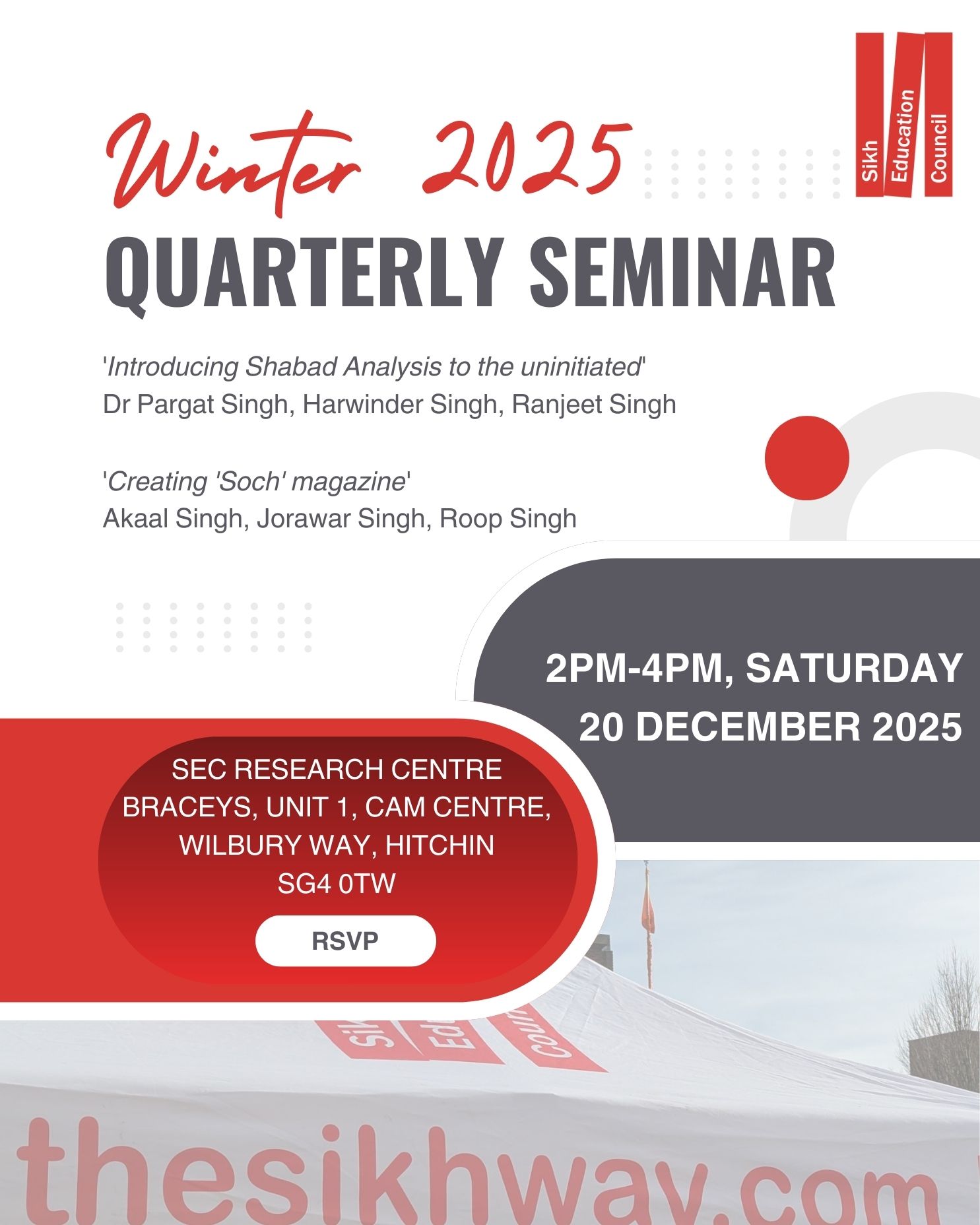Winter Seminar 2025
2pm-4pm, Saturday 20 September 2025
SEC Research Centre, Bracey’s, Unit 1, Cam Centre Wilbury Way, Hitchin SG4 0TW
Papers:
‘Introducing Shabad Analysis to the uninitiated‘, Dr Pargat Singh, Harwinder Singh, Ranjeet Singh
This paper lays out the ideas and purpose behind the Sikh Education Council’s Shabad Analysis programme which is delivered to Year 2 Sikh Studies attendees onwards. Ahead of a more public offering of Shabad Analysis accessible to all, we explain the processes and methods we encourage people to use when trying to interpret Gurbani.
‘Creating ‘Soch’ magazine‘, Akaal Singh, Jorawar Singh, Roop Singh
Three Sikh teenagers worked hard in their summer break to produce a magazine for their fellow teens and titled the magazine ‘Soch‘. As well as launching the magazine at our quarterly seminar, they explain why they came upon this idea, how they found the creative experience, and what comes next.

